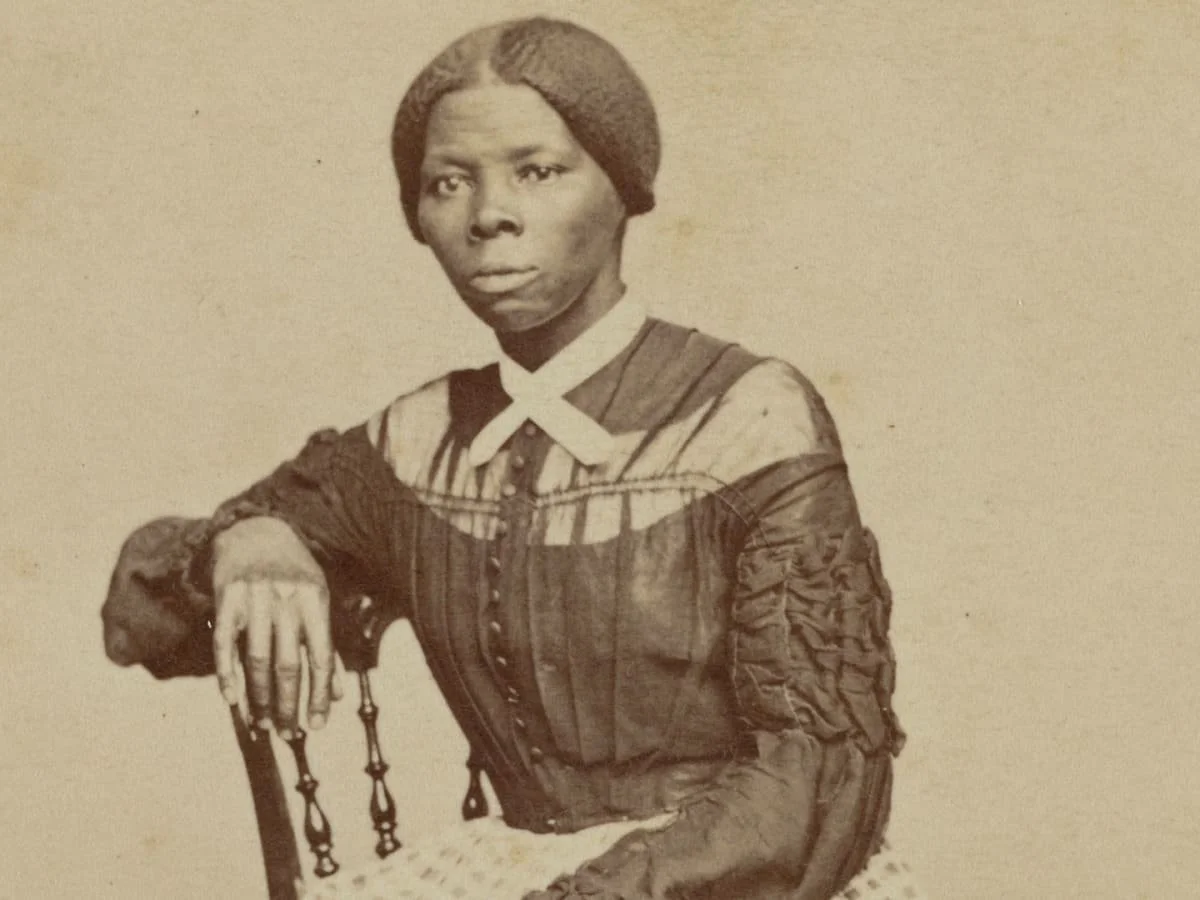Harriet Tubman Was An Abolitionist In Case You Forgot
By Julian Lucas
Published 8/15/2022 6am PST
Updated 8/15/2022 6:30pm PST
“Defund the Police” might be a phrase that ‘pisses’ many of you off, but if Harriet Tubman were alive today she would be a police abolitionist. She would be a prison abolitionist. She wouldn’t call the police for help because she would understand their goal is to arrest and incarcerate. Being born into slavery, she understood what is was like being held in captivity. Furthermore, we should all know, or at least should understand, that our modern-day police originated from slave patrols.
Harriet Tubman would understand who is disproportionately arrested and incarcerated in the US.
If Harriet Tubman had been alive during the Great Migration, she would have been guiding 6 million Black people from the rural south to the urban north to escape Jim Crow laws and the formation and rise of the Klu Klux Klan. She would have helped guide my father’s family out of Greenville, Mississippi to the south side of Chicago.
If Harriet Tubman were alive during the Great Depression, she would have fought for including Black people in the New Deal because we all should realize, by now, that Black people were left out. Harriet Tubman would have helped my grandmother Mattie, my aunt Sis, and my great-aunt Minnie obtain social security benefits, unemployment insurance, and federally-insured subsidized loans. Instead, those so-called ‘government handouts’ were often only issued to White Americans. 98% of the subsidized loans were issued to Whites so that they could move away from Black people to create the suburbs in places like Pomona and Covina, California or Park Forest, Illinois.
If Harriet Tubman were alive right after WW2, she would have helped my father, Thomas Lucas known to his peers as Be-Bop among other aliases depending on the setting. Harriet would have also helped over one million other Black GIs, receive their benefits from the GI Bill - benefits that would have given them a ‘leg up’ on obtaining college degrees and housing. If the GI bill had been made available to the Blacks as promised, it would have helped them enter the American middle class. My father, a US veteran, wouldn’t have had to run underground gambling joints and work in bowling alleys fixing the bowling machines if he had the same opportunities extended to him as were extended to his white peers.
If Harriet Tubman would have been alive during the Civil Rights years, she would have supported Malcom X. She understood that while Martin wanted to integrate, Malcolm knew that the fundamental problem was that the Black communities lacked the resources of the white communities.
Harriet Tubman understood all this because she had received only $200 for her three years of service in the Civil War, under Abraham Lincoln. Harriet was no fool and wasn’t going to settle for less. She spent the next three decades seeking the additional compensation she deserved. During the late 1890s, she submitted her affidavit to Congress explaining her request for payment of an additional $1800 as the proper compensation for her military service commensurate with what her white peers received. She understood there was a significant gap in pay between Whites and Blacks - a gap that exists today.
Harriet carried a pistol and a sword during her missions to free slaves just as Malcolm felt it was necessary to guard himself and his family with a rifle.
If Harriet Tubman had been alive, Malcolm and Martin wouldn’t have died violent deaths by gunshot but would have been laid to rest peacefully of natural causes. If Harriet Tubman were alive during the War on Drugs era, she would have saved my cousins, Alvin, Kenny, and Kylie, including the millions of Black lives that were lost to the system and to early graves. Harriet understood that both business and the government benefit from prison labor, and she would have also understood the school-to-prison pipeline and how it systemically targets Black and Brown youth. If Harriet Tubman were alive today, she would have done more than kneel in protest alongside Colin Kaepernick, or march in a Black Lives Matter Protest. She knew well the injustices - the killing of Blacks at the hands of the Police and the overrepresentation of Black people in the prisons. I know this because she said, “Every time I saw a white man I was afraid of being carried away.” Harriet’s statement reminds me of the time in my life when I was a Black youth growing up in a predominantly White city being constantly harassed by police.
So when people get upset over the phrase “Defund the Police!” - remember that Harriet Tubman would have been fighting the whole time to abolish the police and prisons because let’s not forget, Tubman was an abolitionist.
According to the US Bureau of Justice Statistics, Whites make up 76% of the population, but only 69% of the arrests, while Blacks, who make up 14% of the population, constitute 27% of the arrests. Furthermore, Black U.S. residents (465 per 100,000 persons) were incarcerated at 3.5 times the rate of white US residents (133 per 100,000 persons) at midyear 2020.
LINKS
FBI Crime Report 2019
Jail Inmates 2020
How the GI Bill’s Promise Was Denied to A Million Black WII Veterans
For Black Artists, the Great Migration Is an Unfinished Journey
Julian Lucas, is a photographer, creative strategist, a purveyor of books and writer in training, but mostly a photographer. Julian also works as a housing specialist which, includes linking unhoused veterans to housing.







